
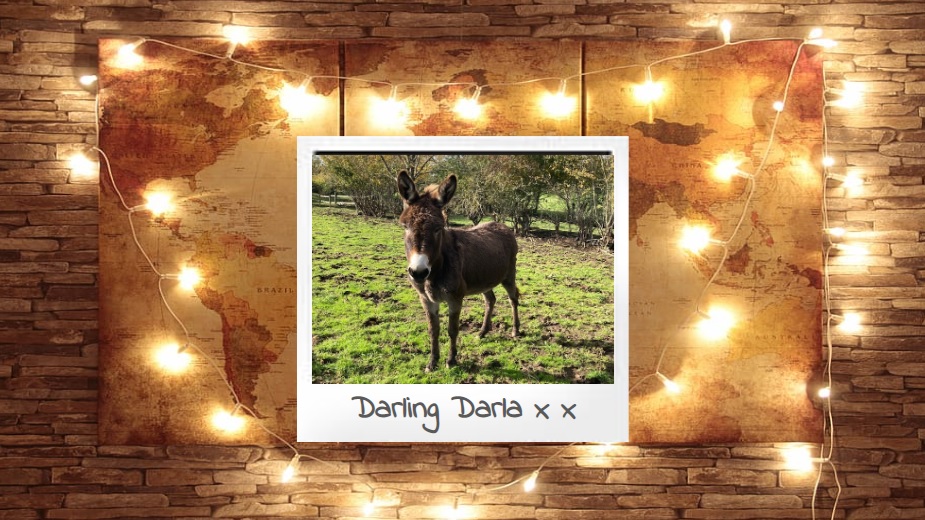
“In November, the smell of food is different. It is an orange smell. A squash and pumpkin smell. It tastes like cinnamon and can fill up a house in the morning, can pull everyone from bed in a fog. Food is better in November than any other time of the year.” – Cynthia Rylant
Hello and welcome to the November issue of the My Lovely Horse Rescue newsletter!
With Halloween behind us for another year we suddenly find ourselves knee-deep in Winter. An extra hour in bed sounds heavenly but that’s wishful thinking for those of us with animal companions whose blatant refusal to observe the clock change means we are up and about even earlier than before!
The number of animals in need of our help is rising steadily and we really need Winter Foster homes for animals in our care. In October, 15 animals came into the Rescue and 4 animals were adopted. Among the arrivals was Stevie Nicks, a four-month old foal. It takes time for all animals to decompress after their arrival and to adjust to the many sounds and smells of the farm.
Stevie is settling in well, she’s very much at home in the barn – the heart of the main MLHR farm! She is a calm and affectionate girl who is partial to bum scratches and rummaging in your pockets for treats. She is inquisitive and can safely interact with animals on the other side of the fence and gate.
Stevie happens to be blind and as she is more reliant on the information she receives from her other senses, we have supports in place to help her orient herself. Her environment is kept consistent, wind-chimes hang on the fence above her water bucket and her supplementary food is provided in the same place at the same time every day.
Before we enter the barn we call to her and we speak to her as we move around so that she knows where we are at all times. She is familiar now with the perimeter of the enclosure and she has ample safe space to get on with the important foal business of playing, rolling, stretching out for well-earned snoozes and generally being adored!
We welcomed 70 incredible members of the TELUS International Team to the main MLHR farm in October. They set to work transforming our garden, making over our feed room (which now has much-needed secure food storage and shelving).

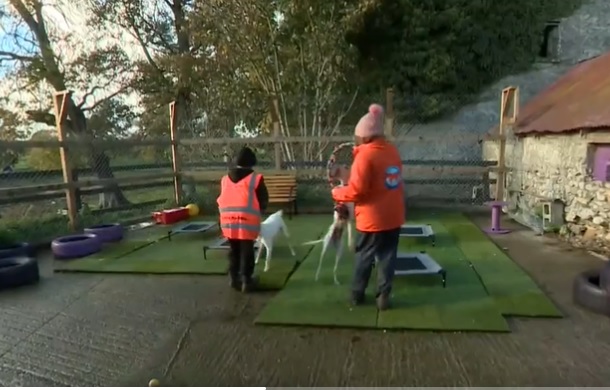
They created a play area for the dogs, they built, painted, mended and bolstered fencing in anticipation of the winter weather ahead and we cannot thank them enough for their support. We’ve had visits from the Vet, Farrier and Equine Dentist to all of our bases to keep the animals in tip-top shape.
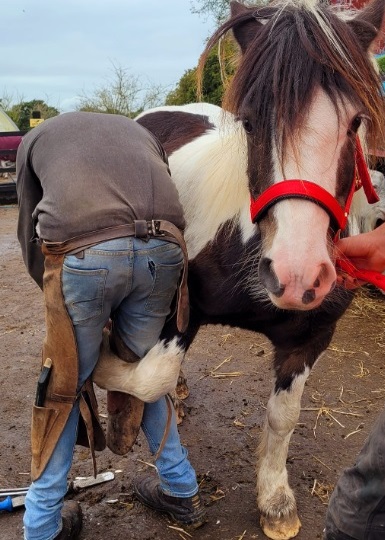
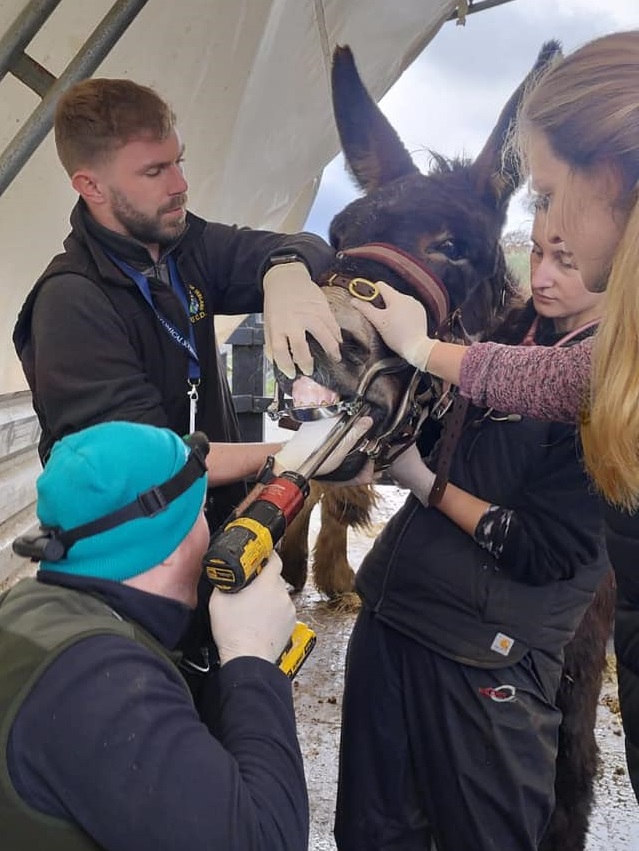

At MLHR Cork this month, the team rescued beautiful Rose and her 8-week old babies Elsa and Arlo. Rose and her babies are so affectionate and playful given their harrowing experience. At just 4 years of age, Rose was forced to have litter after litter of puppies and this has caused her vision to deteriorate. Our Vets believe she can see light and possibly shadows. We are delighted that Rose has now secured a fantastic foster home and Elsa and Arlo have found the loving forever homes that they deserve.
It was another busy month for My Lovely Pig Rescue. The team travelled to Cork to transport three piggy gentlemen who were surrendered into care. These boys had outgrown their house and enclosure and in an effort to escape the elements, were unfortunately beginning to hurt each other. Initially feaful of the trailer, it took several hours to manage their stress levels but they eventually loaded into the trailer and made the journey back to MLPR where they will have room to roam, root and won’t need to fight for respite from the wind and rain.
Not long after Lilly’s babies arrived last month, The Forest Babes arrived. The team had gone in search of ten piglets who had been cruelly dumped in a forest and left to fend for themselves. Hours were spent hours tracking the piglets until the trail suddenly went cold.
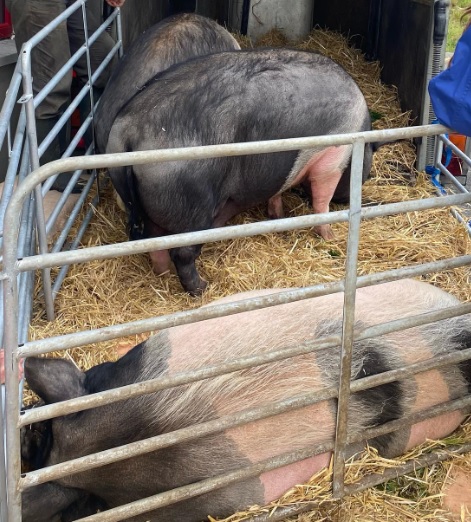
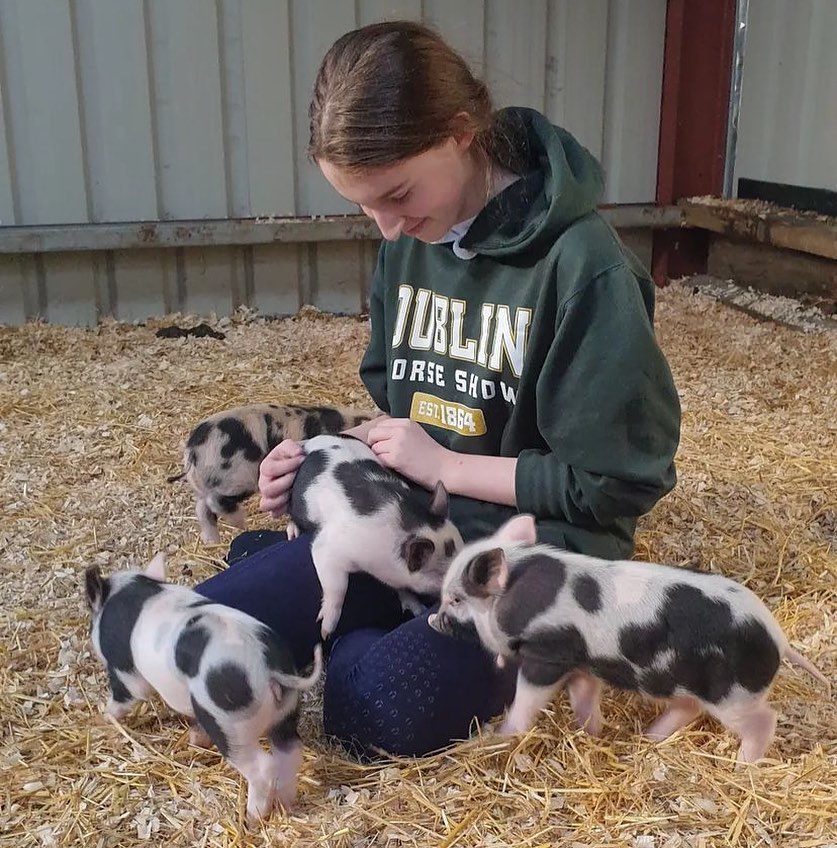
MLPR founder Cathy approached a home at the end of the trail to enquire about the piglets and by sheer coincidence it turned out that the homeowner had just helped Department of Agriculture get the piglets into the safety of a cattle shed. While relieved that the babies were safe from the elements, Cathy worried it might prove difficult to find somewhere suitable to home the babies. Veterinary Inspectors contacted Cathy in the hope that there would be space for the piglets at MLPR. We are so grateful that they agreed to cover the cost of neutering (approximately €90 per piglet) and to transport the piglets to the Rescue. It was a hugely positive example of organisations working together. Sadly, situations like this will continue to arise if people do not take responsible action of neutering pigs before they can breed.
And now to November … our Story of the Month focuses on our relationship with animals, each other and the world around us. In our Arrivals Lounge we welcome Rose nd her darling babies Arlo and Elsa while over in our Departures Lounge we say a very happy farewell to Georgia as she heads off to her forever home. We have an indepth feature on My Lovely Pig Rescue plus news from My Lovely Dog Rescue and the latest bargains from My Lovely Charity Shop and My Lovely Tack Shack. Don’t miss our Behind the Scenes section if your spirits need a little lift on these dark mornings.
As always, we are here for the animals because you are here for us. We hope you enjoy this issue. Thank you for subscribing!

Story of the Month – Hear their cry
Tackling the whole area of animal welfare is a hard one and as our interactions with animals, both wild and domestic change and our usage of them becomes more complicated and interdependent there is even a struggle in the scientific world to come up with one clear definition of what animal welfare really means.
Is it just about the physical health and well-being of the animal? Is it about their mental health? Is welfare about their ability to express normal behaviours and how do we define these behaviours for each species? Is it a combination of all of these? How do we assess pain in animals? How do we assess their emotions in a way that is relevant to them and that we as humans can understand and interpret in a way we can use for how we treat, house and look after them?
Are animal experiments ever justified? Are there some species who we should never experiment on and what sets them apart from those we think it’s okay to let live out their whole lives inside laboratories being constantly examined, observed and tested on?
Why does any of this matter at all anyway? Why does animal welfare really matter? Why does it matter how we treat animals? Are they not there for us to use, to eat, to clothe ourselves with, to test drugs and products on?
At a time when so much is happening in the world we need to truly see that everything is connected. How we view each other as humans, how we view animals, how we view our relationship with nature, each one of these informs the other. Each one of these relationships feeds into our overall existence and well-being and as long as we continue believing that anyone else, whether human or nonhuman, is there for our needs and that their needs are secondary to ours then we will never be at peace as a species ourselves.
So many threats are facing us and the animals of our world right now and how we treat the humans in need and the animals in need will define us as a species going forward.
Our own continent is being pulled apart by a war that is ominously reminiscent of one which threatened the sovereignty of every nation in Europe once upon a time. Refugees and their beloved animals are streaming over the border seeking shelter and peace and we need to help them, no matter the cost. (We shouldn’t be too complacent either just because it’s not right next door, WW2 didn’t start off right next door to us but it spread and allowed such hatred and violence and xenophobia to take root and tear lives apart in the most horrific of ways that the scars are still visible and raw today in so many communities).

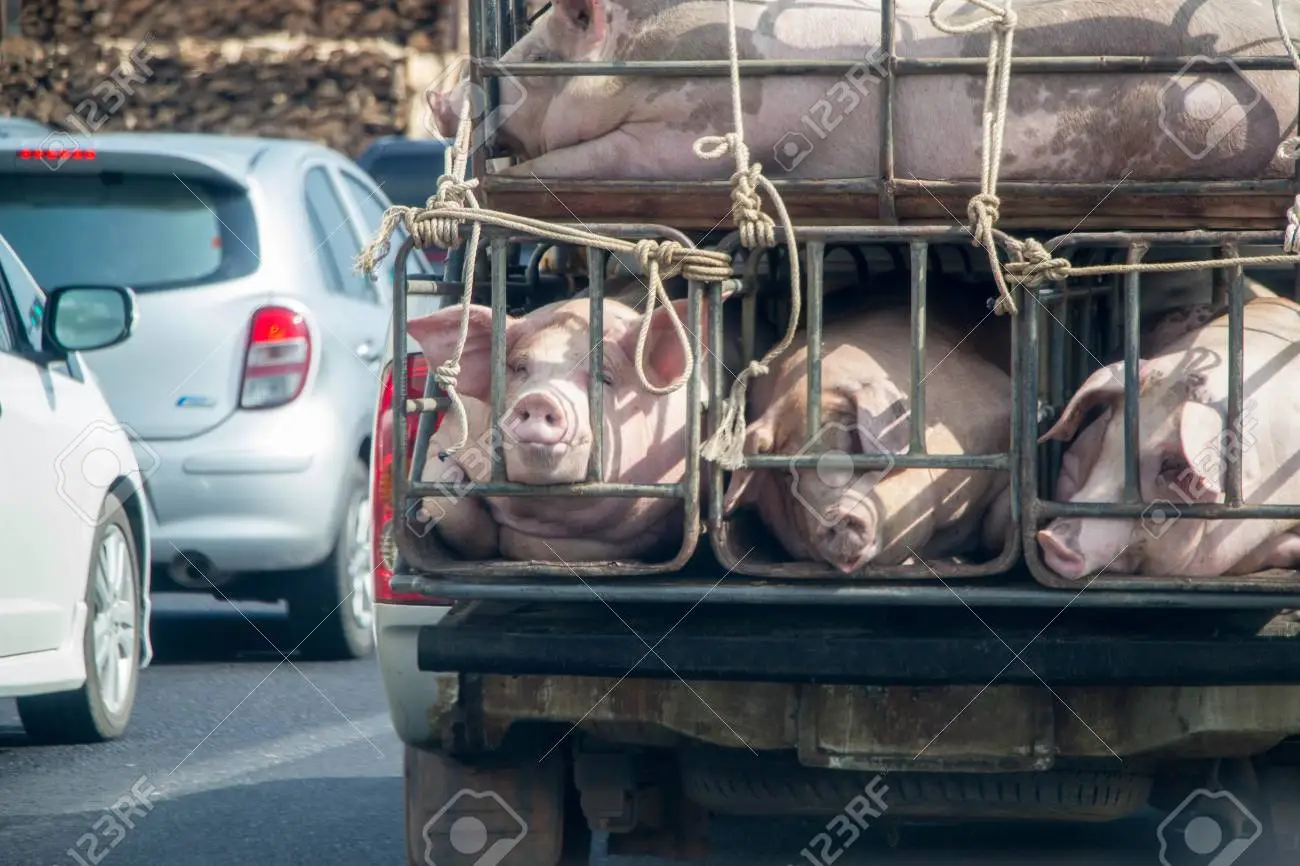
Zoonotic diseases are spreading and becoming much more common, threatening our very existence and in the last twenty years have led to such an amount of human suffering and death but also such suffering and death amongst our animal friends with millions culled, often in barbaric and agonising ways. (Did you know that hundreds of thousands of pigs were both buried and burnt alive only 4 years ago in China to try and control an outbreak of African swine fever? And the Irish government now wants to export our beautiful Irish pigs to this very country to help them restock after they buried all of theirs alive?). We can look to the country who did this and blame them for such barbaric behaviour and then pride ourselves on ‘being so much better’. Or we can acknowledge the role that we all play everyday in the choices we make in our lives. Our food system is international now and we can no longer believe that we and our choices are separate from the immense suffering that happens every single hour of every single day to domestic animals all over the world.
As the UK and other countries, most recently New Zealand, move to ban live export the Irish government is actually ramping up ours. Last year 141,494 calves alone were exported from our shores. Let’s call them what they really are shall we, babies, cos many of them are only a few weeks old. If any of you have ever been close to a calf, touched their soft little muzzles, scratched their big velvety ears or looked into their beautiful eyes with their ever so long eyelashes, then you would know that they are gentleness personified. So why are we taking them away from their mothers who can be heard bellowing for them for days on end each year on dairy farms up and down the country, then cramming them into lorries and then onto huge ships without access to food or water, scared and completely not understanding what’s going on at all. Just imagine for a moment that fear they are feeling and that journey they must make on rough seas and then imagine what awaits them on the other side.
It’s a horrific thing to say but those calves who died of starvation and disease on that Co Galway farm and Co Limerick farm that we all think is just so terrible, were they maybe actually the lucky ones? Was their fate any worse than that of those who we as a nation legally send abroad every year? Those calves died here at least. They did not die on a boat on rough seas falling down and being trampled on underfoot, They were not crammed together for hours trying to stay standing with the only thing to feed on being the stress and suffering of the thousands of other babies around them. They did not land then on the other side to be roughly and violently herded off the ships and then transported yet again, hungry, weak and covered in faeces, to the slaughter houses. They did not stand in line in those slaughter houses, watching their fellow babies being killed with knives and other weapons as they awaited their own death too.
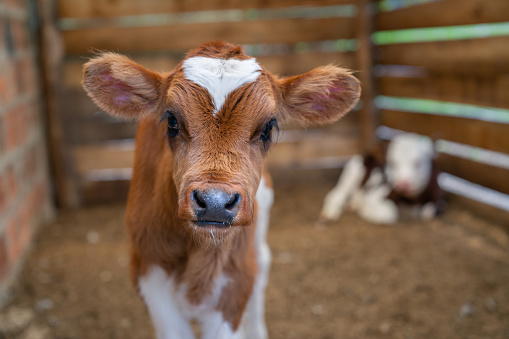
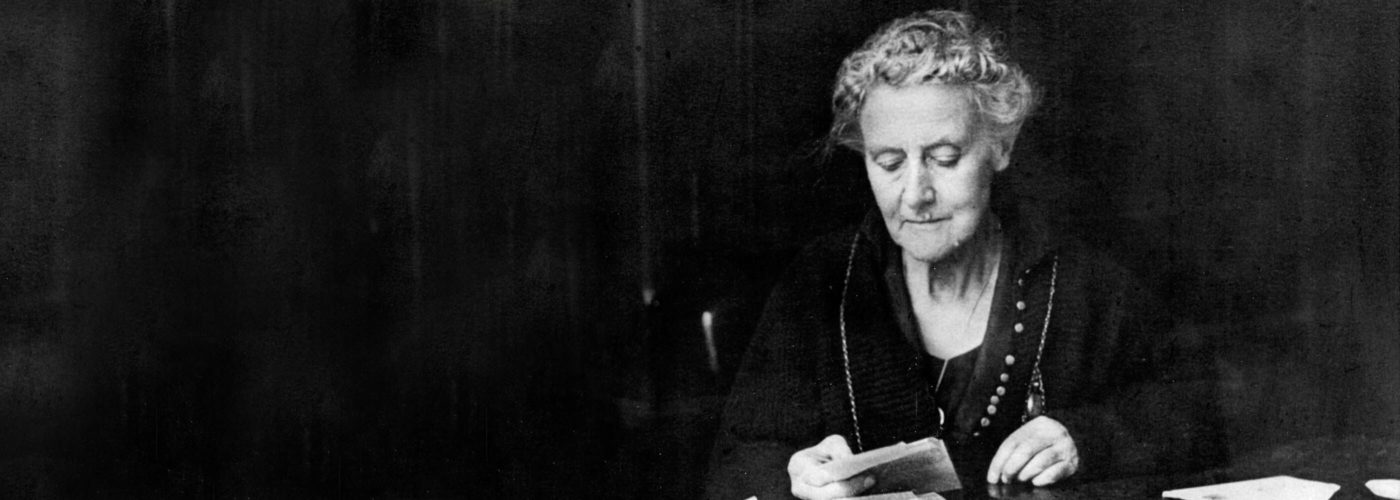
In the Spring of 1911, an extraordinary woman saw a sight in the ports of Antwerp, Belgium which was to change everything. Ada Cole, an English nurse, a vegetarian and a staunch advocate for animals all her life found her true calling at the age of 51. This author cannot describe what Ada saw any better than to quote from Joyce Rushen’s book ‘’She heard their cry, the life of Ada Cole,’’
For there, upon the quayside, stood line upon line of worn-out English horses, feeble, lame and pitifully old, some of them partially or wholly blind as, roped three abreast they staggered to a dreadful end in the local abattoirs over four miles ahead. Behind them, creaked a string of conveyances, waiting to pick up those too infirm, or too injured, to continue walking. Those that had not survived the brutal conditions of their voyage lay crumpled in horrifying stillness on the ground.
The sheer compassion, the willingness to look and truly see, the strength and determination of Ada Cole that day led to the founding of World Horse Welfare, an international organisation which works with equines and their owners all over the world to better their lives. I wonder what Ada would make of our world today?
Here we are over a century later and the sight of helpless animals being transported like those horses is still going on. Have we learnt nothing? Where is our humanity? Where are our eyes that can truly see what we are doing?
The world is changing and we must change too. We must evolve further as a species if we are to have any hope at all. What is the point of declaring animals as sentient beings when we continue to treat them as property and do whatever we want to them, justified by our so-called needs?
We’ve been using the creatures and the resources of this planet for ever so long that we can’t see any other way but there is always another way.
We just have to go and find it.
So today let’s all think about how we could live our lives without hurting anyone, without hurting the smallest of creatures who are, after all, just doing exactly what we’re doing, just trying to survive.
I saw a fly the other day outside clinging to the door of my car, black on silver, and I thought, you do not have long for this world my tiny friend. Then later I looked up about flies. I thought they would have very short lifespans and die off during the winter but I found out that actually many will spend the winter, weeks at a time, in a state of suspended animation hiding in attics and wall crevices and then wake up again when the weather is better.
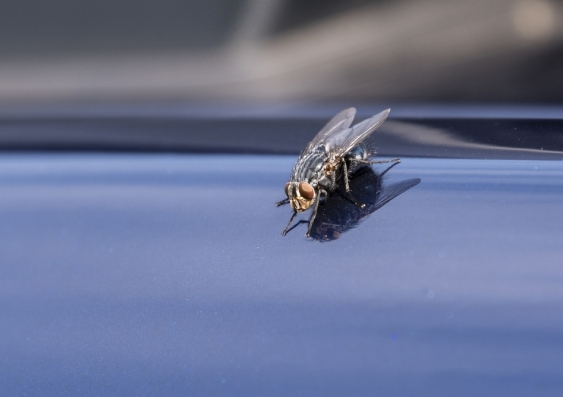
And in a very strange way this made me quite happy, to think that the little guy I saw, so small and achingly fragile, might just make it through to Spring. How different is he from me really? We both breathe (slightly differently to be sure, me by getting oxygen through my lungs and he through a system of fine branching tubes called a tracheal system bringing oxygen directly to each cell of his body). We both need food. We both need shelter to survive in hopes of another day. Does he have hopes like I do? Does that even matter? We’re both here for whatever time has been allotted to us, neither of us particularly in control of that and we will stumble through and make mistakes and live on for a brighter day tomorrow.
So let’s be kind to ourselves and others, human and nonhuman, no matter what shape or form they might be. In the end we’re all in this together and together we might just survive it.
And let’s choose to be on the right side of history because time will surely show us that we have been so horrifically wrong in our attitudes to animals.

Arrivals – Rose and her beautiful babies, Arlo and Elsa
Our vision is such a powerful sense, perhaps our most powerful. Without it the world all round us is dark and so very difficult to navigate. We can’t see those we love and we have to rely so keely on all our other senses to make sure we and they are safe. Living in a world we cannot see can be such a scary thing. To be surrounded by those we love is vital to help us feel safe and make our way through.
Imagine Rose’s life then before she came to MLHR. She had no one who loved her and she was used and abused every day of her life to produce litters of puppies for someone’s greed and financial gain. Her beautiful puppies were taken from her everytime and she couldn’t even see their little faces before she lost them. How truly dark in every way her days must have been.
Now finally there is hope for Rose. She and her last two precious babies, Arlo and Elsa, are safe and loved. She is being fostered in a home which loves and respects her and where every effort will be made to make sure she knows she and her babies are safe. The constant stress which she would have felt up til now is slowly ebbing away and a whole new life is opening up before her. Once her puppies are old enough they will go to their forever homes – two have already been lined up for these wonderful, playful little dotes. Rose herself is still young, only four years old so she has many years of happiness now to look forward to. Already you can see that she has a wonderful nature and is very kind and loving. Soon the darkness too may be behind her as we will see if there is any treatment for her condition. In the meantime she is happy in herself and enjoying precious safe moments with Arlo and Elsa.
Departures – Georgia
All of our rescues are very precious to us. Many have come from very difficult situations and so we try our best to make sure that when they leave us again it’s to a pretty wonderful home. But all the homechecks in the world are often just not enough. Horses are worth money and we find that there are those out there who will sell on our rescues and not abide by the contract they have signed with us which strictly forbids this and forbids any breeding. So it was with Georgia, sold on again and again and it always amazes us just how many owners some of our horses pass through in quite a short space of time.
The power of social media though is truly amazing and we would never have found Georgia without it. Just in the nick of time too and with her little foal at foot. We were lucky that her present ‘owner’ (because through it all MLHR remained her legal owner) was a very nice individual who when he heard her story handed her back over with no fuss. For that we will be forever grateful. Georgia came home and now she has gone to her true forever home, a wonderful family who already have 6 other MLHR rescues. We can rest easy now knowing that Georgia is safe in their care forever.
We have other horses in this situation right now and we don’t know if we will ever see them again. In the meantime Georgia remains our story of hope and success, she is the one who we found, she is the one who we don’t have to have sleepless nights over anymore.
To our other horses out there, we love you and we miss you and please know we’re still searching for you.

At My Lovely Pig Rescue, Lilly is settling into motherhood and her five beautiful piglets are loving this new and exciting thing called life. Lilly is an amazing and very relaxed Mum but at just 8 months only, she is just a baby herself. When Lilly and her sister Nora arrived in June and Nora was heavily pregant, MLPR founder Cathy suspected that Lilly might also be pregnant.
A pig’s gestation period lasts 3 months, 3 weeks, and 3 days and from her arrival, Lilly was closely monitored for any signs that a pregnancy might be progressing. Once Lilly began to “bag-up” – the stage of pregnancy where the udders drop and the mammary glands enlarge and fill with milk, Cathy calculated that Lilly was likely a week away from having her babies.
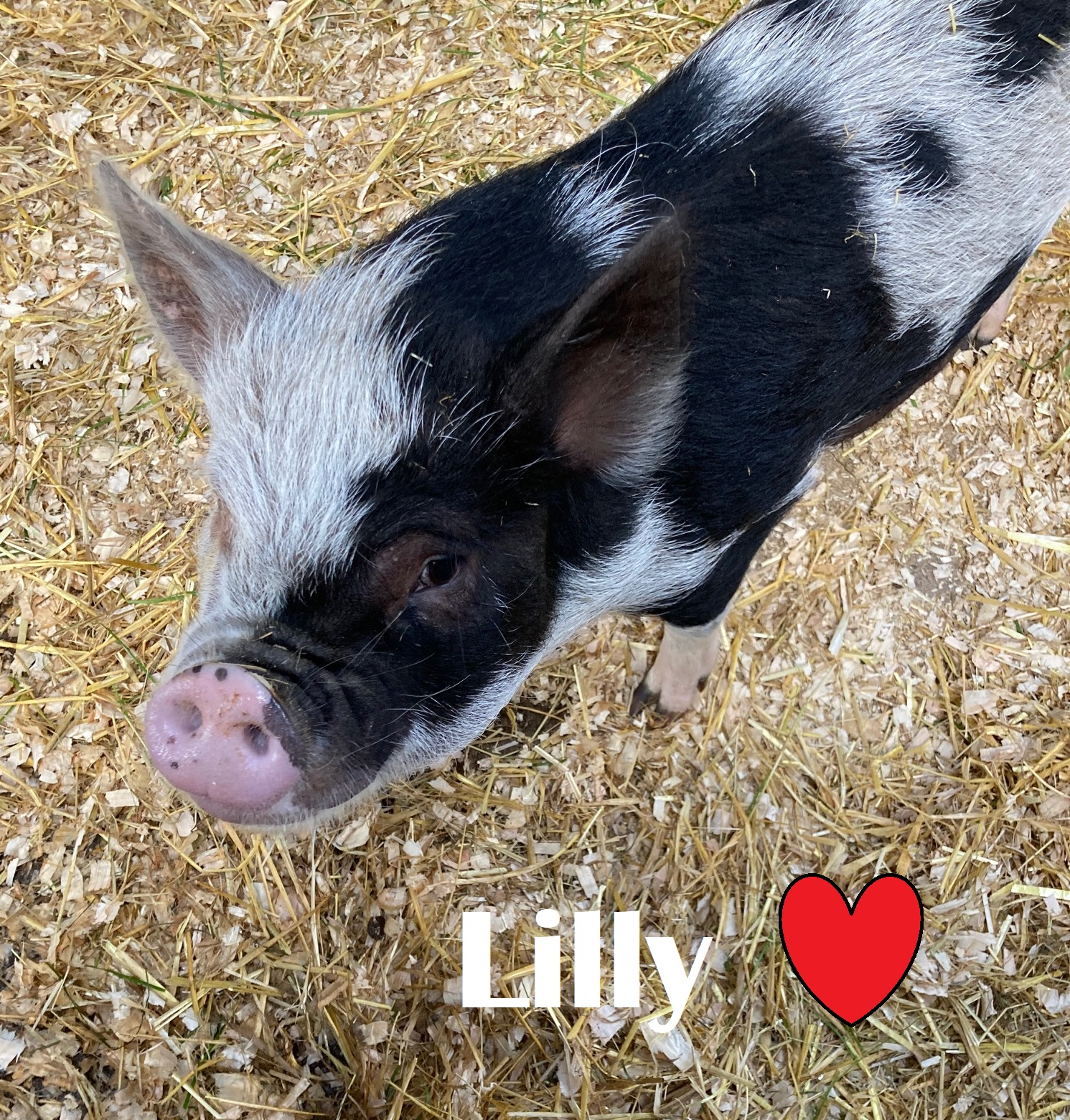
Exactly one week later, the piglets were born. Given the time since her arrival at MLPR this meant that Lilly was likely impregnated 1-2 days before she was rescued. Cathy says Lilly was likely impregnated on her first heat by one of her brothers. The primary concern was that as Lilly is so young, her pelvis so small and her babies inbred, complications could arise that would put Lilly’s life and the lives of her babies in danger. In the weeks leading up to Lilly farrowing, Cathy spent time with her every day, gently handling Lilly’s face, belly and her bum to get her used to this kind of touch so that she would not be unduly stressed if intervention was necessary during birth.
Lilly is such an affectionate girl and contined to be, right up to and after giving birth. Cathy explains that leading up to giving birth, Mamas don’t want to be around other pigs – they don’t want pigs on the other side of the wall from them, they don’t want other pigs walking around outside their nesting area. They don’t want anything in their environment to be changed as they will have spent time preparing the area to be just as they want it for having their babies. Problems arise as Cathy says “if they can’t prepare, if they can’t nest and remove themselves from the dangers of the herd, the other boars or females”. Cathy notes that you can see “the beautiful unit that is created from having that privacy and you don’t have stressed mamas and sick babies”.
Piglet cameras were set up and monitored round the clock but thankfully everything went very smoothly and Lilly gave birth to five beautiful piglets in an hour and a half. Lilly is fit and active and having a strong core certainly helped with the birthing process. Pigs need to be healthy not only to withstand labour but to be able nurse piglets without collapsing on them. For pigs who are intensively farmed, confined in an unsuitable environment, unable to run around and express their natural behaviours, they have no opportunity to be active, to keep their core strong or stimulate their natural hormones.
The denial of the five freedoms of animal welfare results in pigs enduring unthinkable suffering in our society. Mamas know what they need but when the conditions they live in are so restricted and so far removed from a natural Mama’s rights they will understandably become very stressed. If they must farrow surrounded by other pigs, unable to prepare their environment as they wish, unable to hear their babies above other noises or smell them among other smells upsetting behaviours commonly associated with sows can arise. All of those behaviours, all of this stress is entirely preventable.
Lilly nurses every half an hour or so and she will likely have her babies with her for the next 2 months. She has a great appetite and eats a balanced and varied diet to build her back up after pregnancy, birth and nursing. As Cathy explains, “we make up our own pig feed which is beet pulp, barley, seaweed, pig minerals and vitamins, linseed oil for the omegas, and then they get grass and have their noses in dirt. We watch Lilly’s top line and she gets an extra handful of pig pellets which are high in protein, which the other pigs wouldn’t get.”
The straw in the bedding area is kept flat because the piglets are still small and tend to bury themselves in bedding. Watching Lilly on the cameras it was clear that she would come into the sleeping area, and oink first to locate each baby. She would then sidle in beside them and they would snuggle in together. In the early days after the piglets were born, Cathy recalls that Lilly would come out for her food, then seem conflicted. She’d run back in to her babies, call to them, cock her head and listen for them. After locating each of them, she would spend some time fussing over them and then she’d come back out to eat. Cathy says “to call them, listen, find them, check them and then come back to food – they are all the same instincts that we have. Mothers’ instincts are denied so ritualistically and so systematically and I don’t know how it’s happened.”
Lilly is one of the lucky Mamas. She was just beginning to experience freedom and a happy and fulfilled life on her own terms when her babies were born but in just a few months, once her babies have been weaned, Lilly will be able to continue her resume her adventures. For Lilly and her babies the future is bright.

Just before Halloween we welcomed Virgin Media News to the main MLHR farm to report on the current dog crisis and our need to raise funds to build kennels for the dogs in our care.
We have constructed temporary kennels which we continue to repair but they are not holding up to the wind and torrential rain. With considerably worse weather on the way we need to install steel and secure kennels with suitable drainage that will protect the dogs from the elements and keep them safe, warm and comfortable.
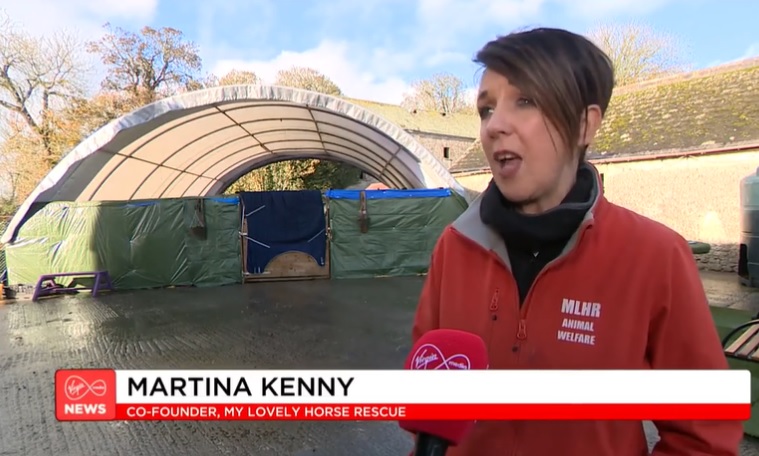
We are aiming to raise €16,000 to build these kennels and we would really appreciate if you could help us by donating, if you are in a position to do so, or simply by sharing our appeal. Pounds are full of unwanted, abandoned dogs. MLHR and other rescues are doing everything they can to save as many lives as possible and we are urging people not to shop but to instead foster or adopt one of the wonderful dogs in our care.
We are still recruiting Volunteers to join our Dog Team at the main MLHR farm in Kildare to assist with cleaning, walking and spending quality 1:1 time with the dogs. If you would like to foster, adopt or join the Dog Team please contact [email protected].
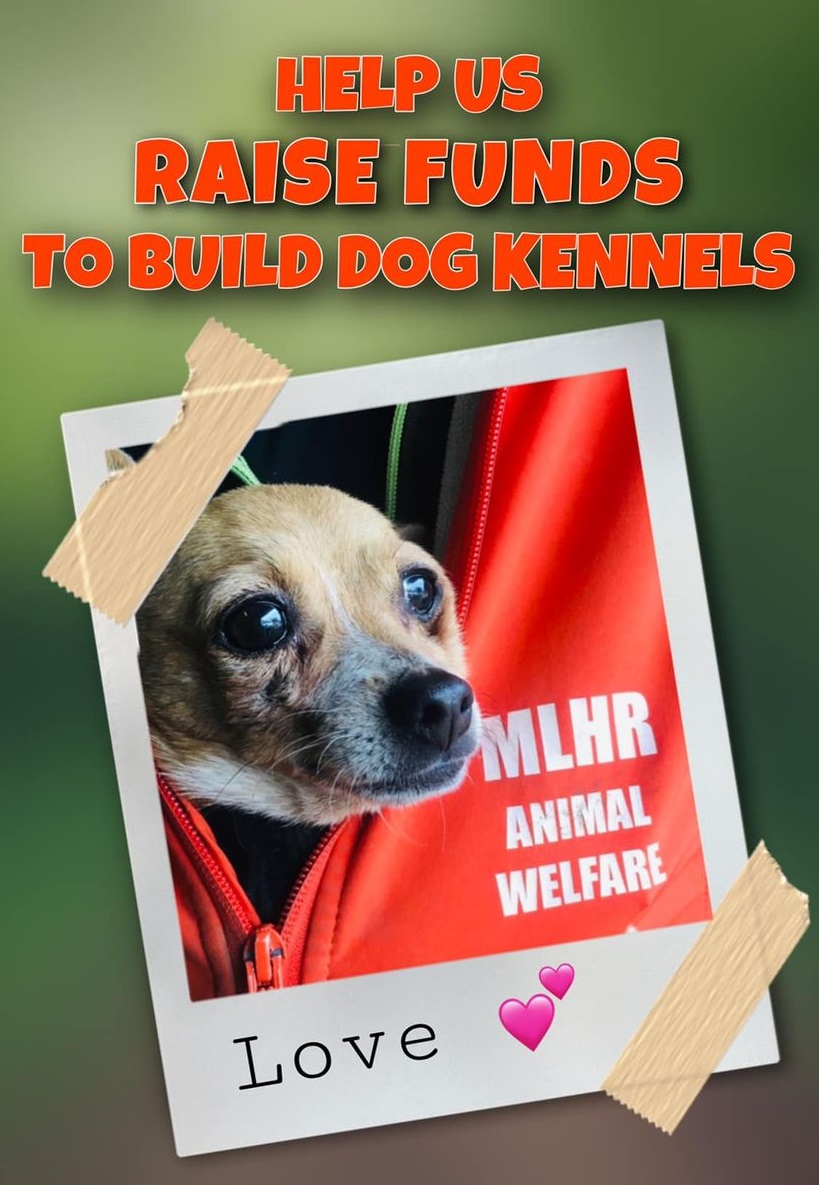
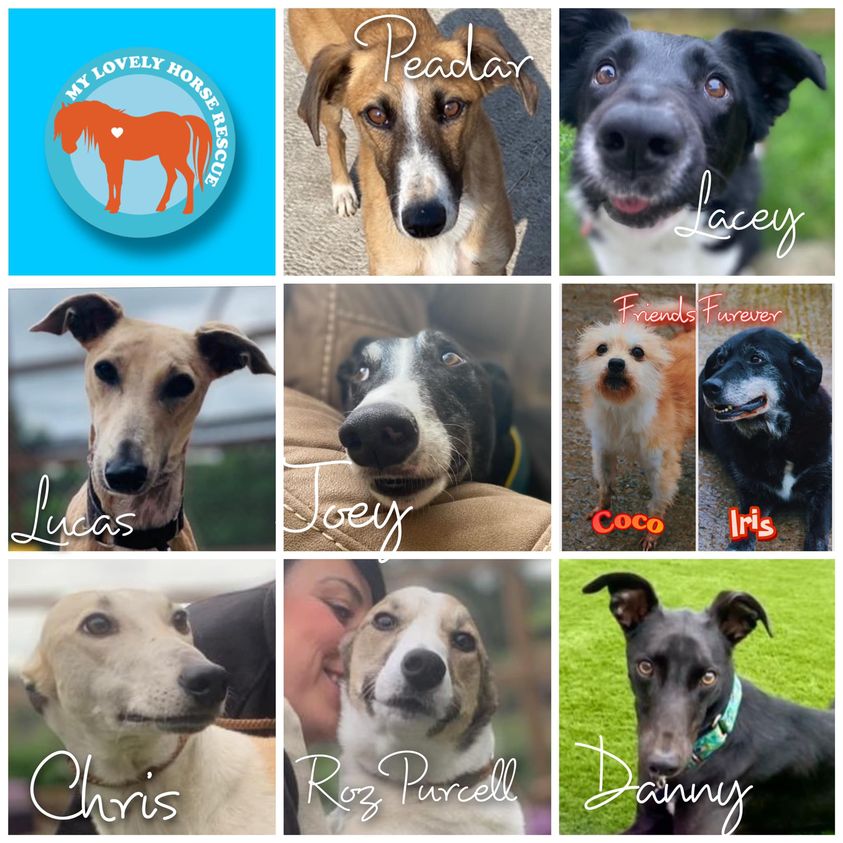

Here at My Lovely Charity Shop we are trading nights out for nights in. If you’re planning on hosting a dinner party, we have just the items for you! We currently have a wonderful selection of Waterford Crystal, glassware and Arklow pottery in store at affordable prices. They don’t make ’em like they used to!
Upstairs in My Lovely Tack Shack this month, we have a wide selection of rugs in stock (outdoor, stable, cooler and summer sheets) for Miniature ponies and a selection of 17.5″ and 18″ saddles in excellent condition.
Stop in for a browse – you never know what you might find! Open Tuesday to Saturday 10 a.m. to 5:30 p.m. at 81 JKL Street, Edenderry, Co. Offaly.
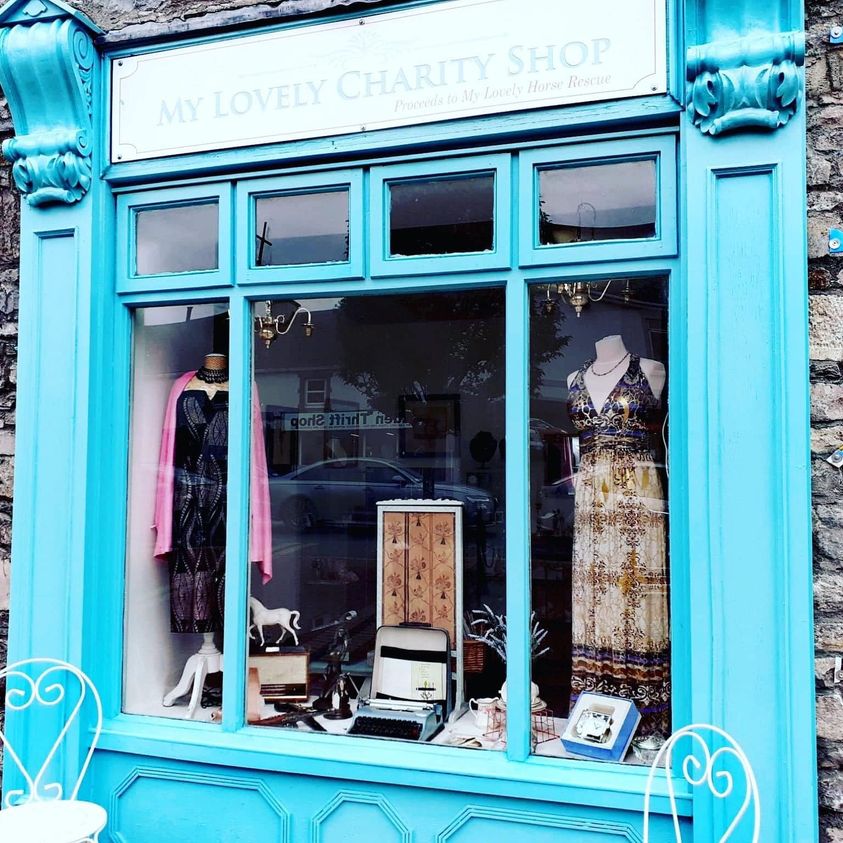
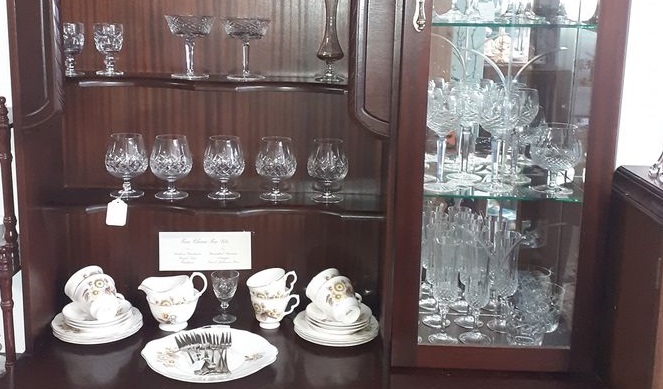
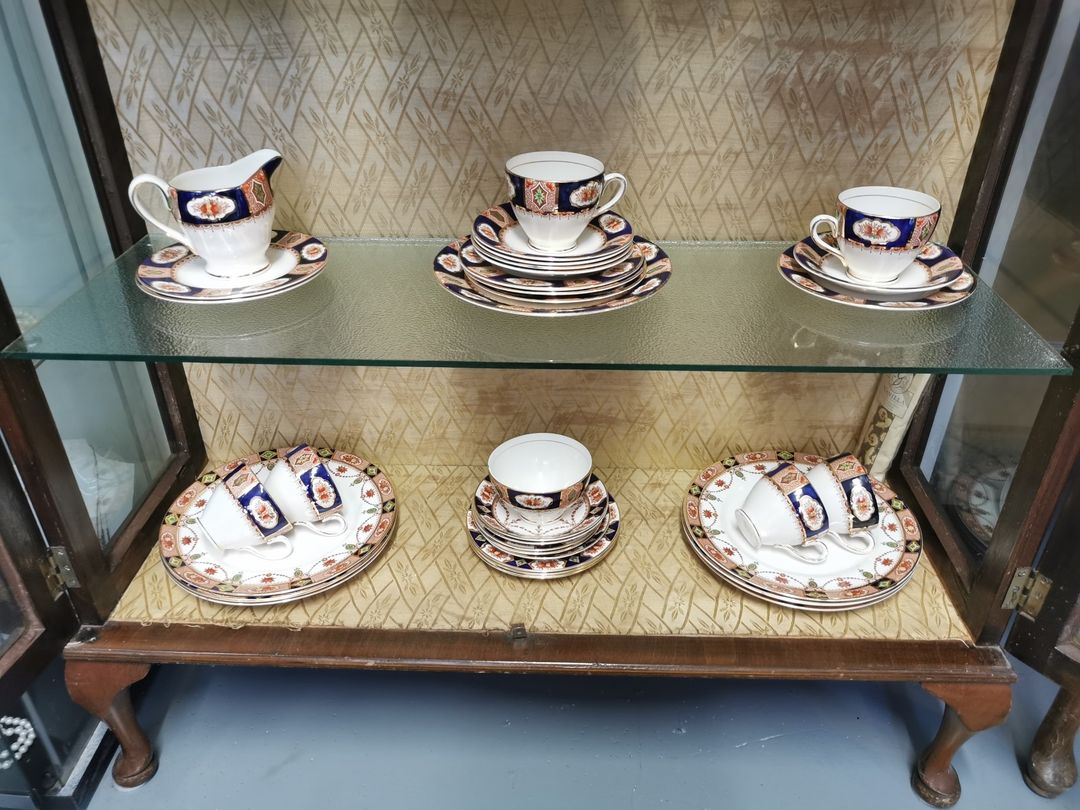
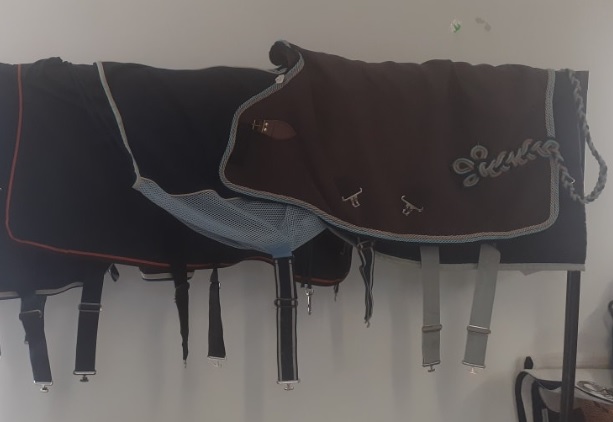
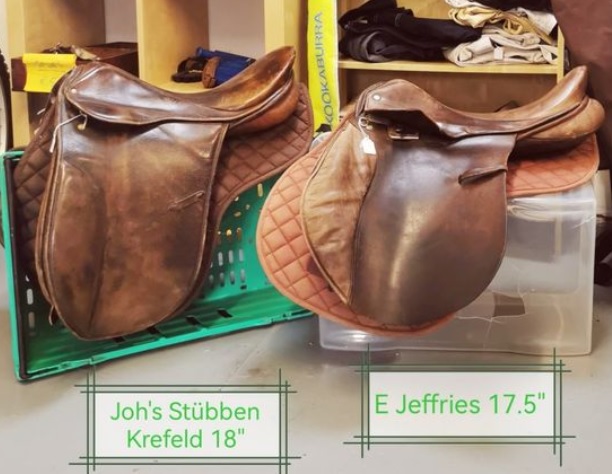

Our farmies work from morning until night to keep the farms running and all the animals cared for. Between cleaning, feeding preparation, medical treatments and call outs, they capture so many moments on camera, some are funny, some are tender and some just show how content the animals in our care are, living the peaceful lives they always deserved. Here are some ‘behind the scenes’ videos and photos from the farms this month.
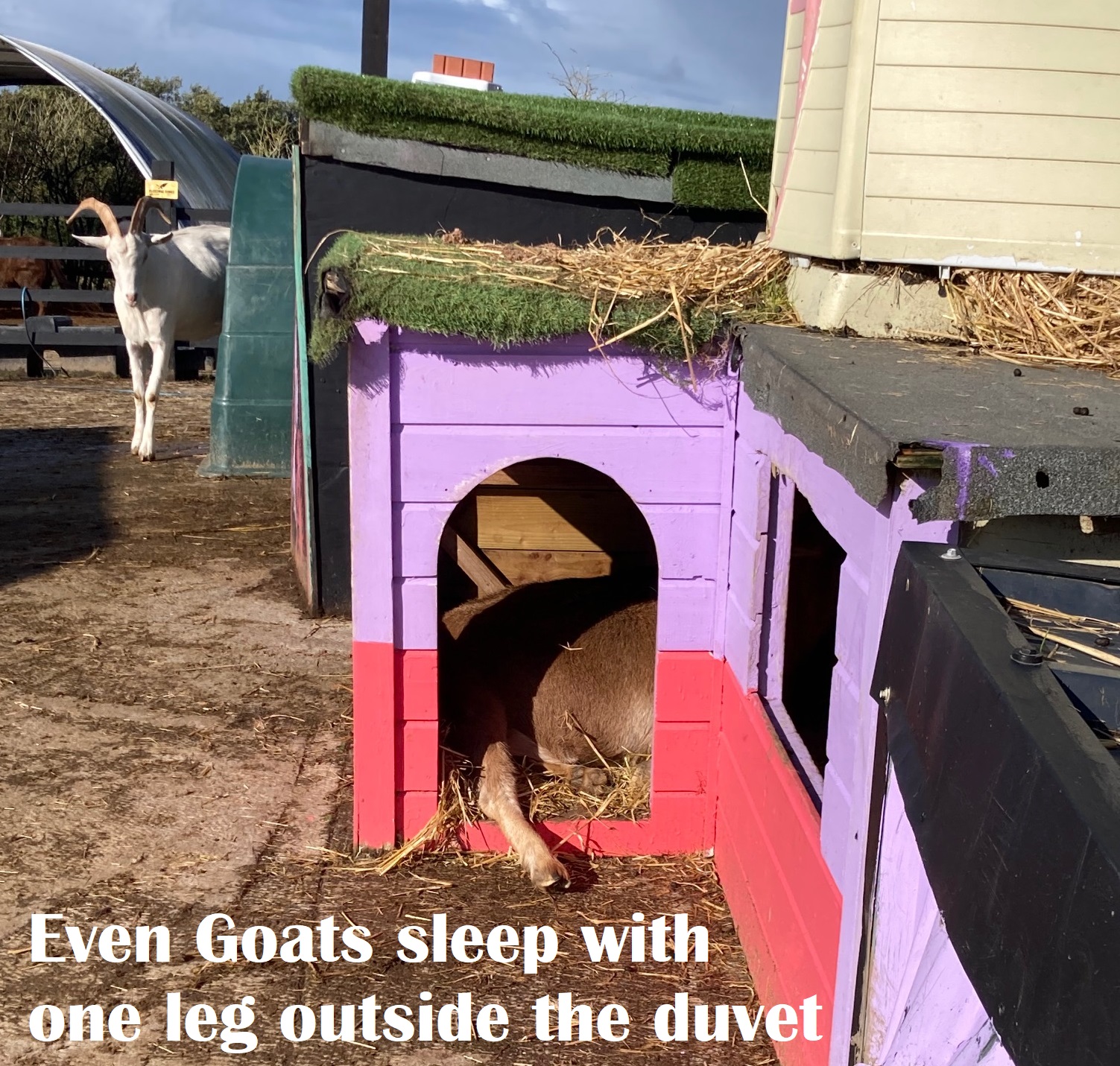

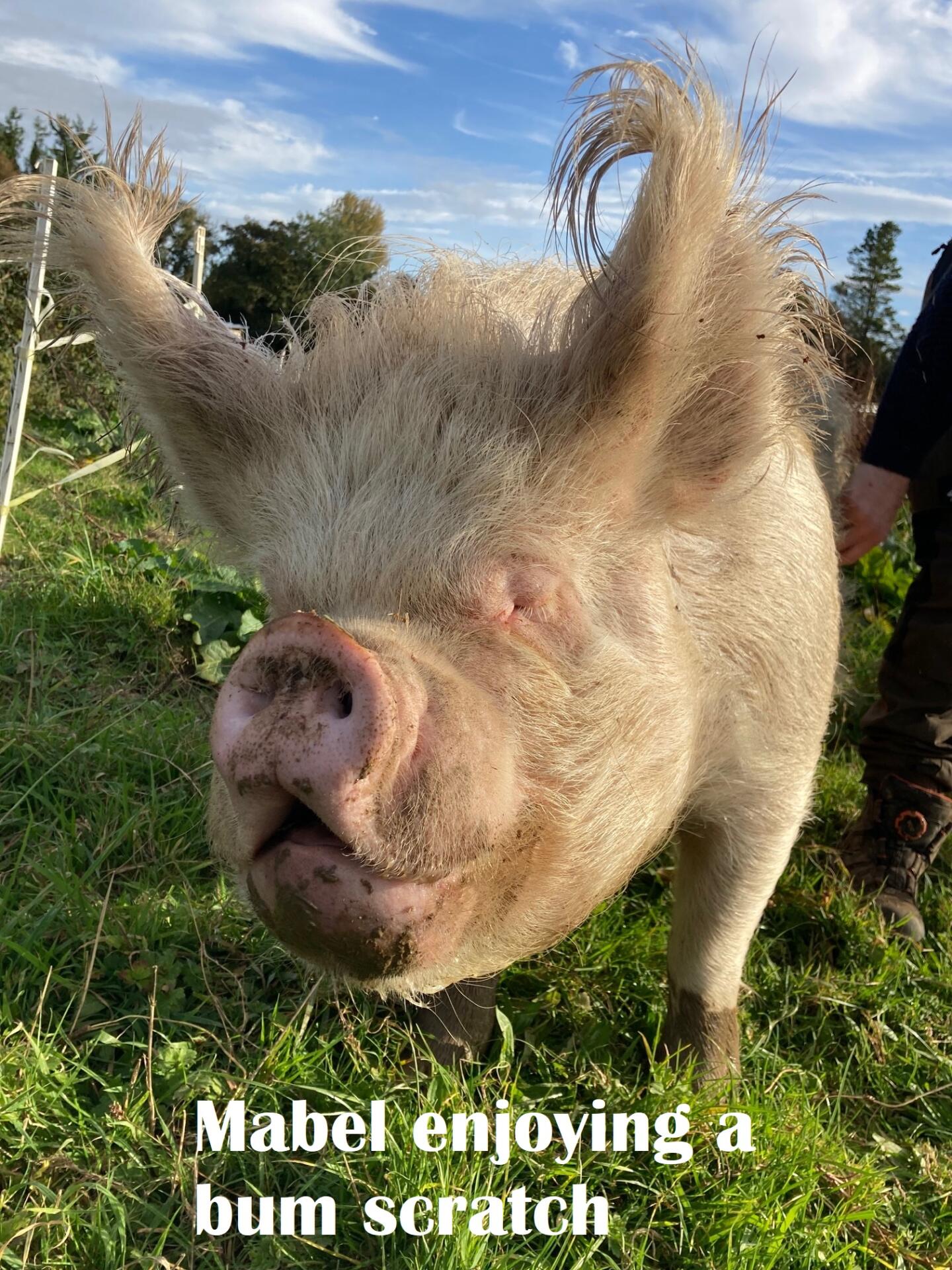

The number of people making donations on a monthly basis now represents a fifth of all donations MLHR receives. Most donations range from €2 to €20 a month and we are so grateful for every cent. Some of our supporters opt to donate weekly, quarterly or annually and our text donation number makes it easy to donate €4 at a time convenient to you. Life is unpredictable and with the rising cost of living, we are all keeping an eye on our monthly spending.
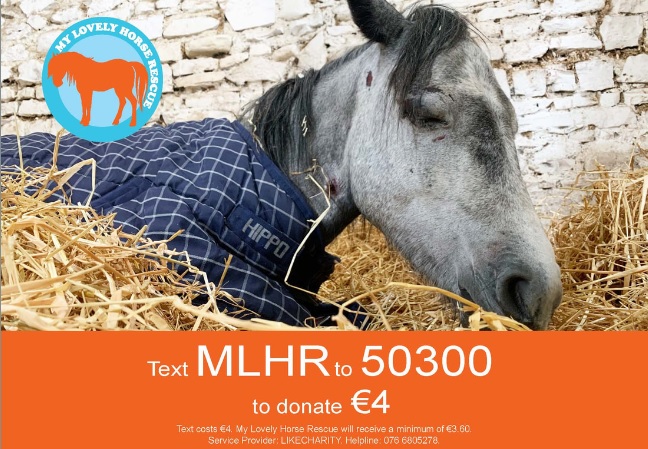
A regular donation might not be affordable right now and you might want to cancel a scheduled donation. That’s absolutely no problem. You can do this either by logging in on our website using the links provided in your donation receipt email or you can contact us directly and we will be able to make the change for you.
Did you know that we can also partially or fully refund a recent recurring donation? Please let us know if this is something you would like us to do. Unfortunately, disputing a payment with a bank leads to the bank charging MLHR exorbitant chargeback fees. They don’t notify us of this nor do they give us to the opportunity to make any requested changes. We’re more than happy to help you in any way we can so please don’t hesitate to get in touch!
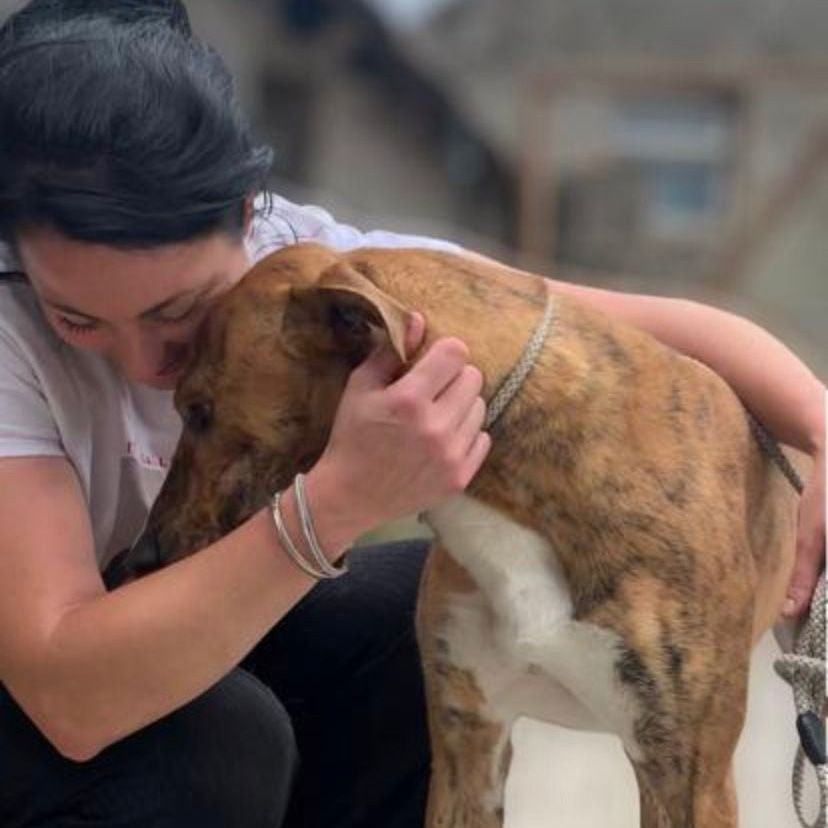

CBD Science Ltd. has been incredibly generous in gifting products to the MLHR residents and in sponsorsing our newsletter. Their lavendar and eucalyptus healing salve is a particular favourite with the animals in our care. Not only does it smell amazing but it is made from natural and organic products, oils, and beeswax and is infused with 10% broad spectrum CBD – perfect for soothing irritated skin and scars.
Our donkey friend Gramps is prone to dry and lumpy skin on his nose and ears which can become cracked and sore. Since using this product we have seen huge improvements in Gramps’ skin and the lavendar and eucalyptus healing salve is now a part of his daily skin-care regime. It’s amazing on human skin too so please do check it out!
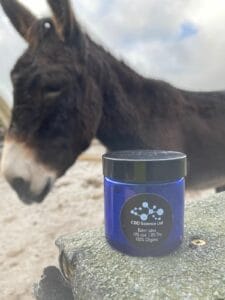

Under the Animal Health and Welfare Act 2013, only Authorised Officers (An Garda Síochána; Department of Agriculture, Food and the Marine Inspectors; and County Councils/Local Authority Inspectors) are permitted to seize animals, to enter private property, to carry out investigations or to bring prosecutions. MLHR assists Authorised Officers with their work and for this reason, it is vital that members of the public reporting incidents to MLHR also report to the relevant Authorised Officers so that we can liaise with and help them move animals out of harm’s way and into safety.
What you can do
1. Provide us with a description of the animal(s) at risk and the nature of the incident.
2. Send us a pin drop or accurate description of the location.
3. Take Photographs/Video footage but only if it is safe to do so.
4. Tell us which Authorised Officer or Garda station you have contacted.
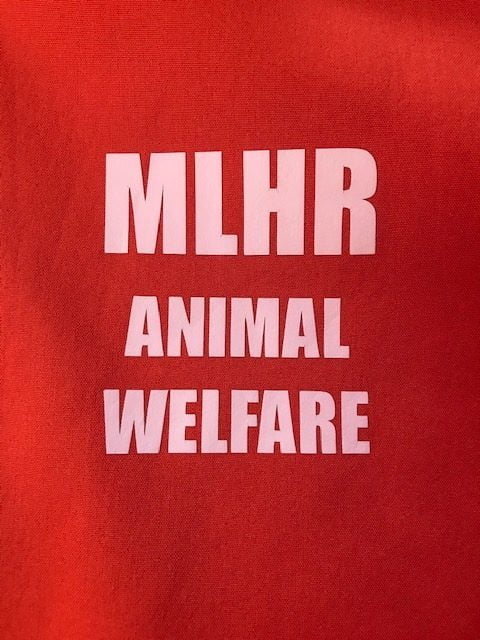
How to make contact with Authorised Officers
• An Garda Síochána – A list of Garda stations is available online at https://www.garda.ie/en/contact-us/station-directory/
• Local Authorities (for incidents on Public land) https://www.gov.ie/en/help/departments/#local-authorities
• ISPCA for emergencies call 1890 515515 (Monday to Friday 9 a.m. – 5 p.m.). Welfare concerns can http://www.ispca.ie/cruelty_complaint
• Department of Agriculture, Food and the Marine – for incidents on private land phone 01 607 2379 or 0761 064 408 or email [email protected]



Always heartwarming to watch the videos of the animals on the farm and seeing them looking so happy.
We’re delighted you enjoy the videos! Thanks for taking the time to tell us.
Inspirational. So happy for the animals in your care . My wish is for all animals to be so loved ❤️
Thank you ?
Thank you Joan!